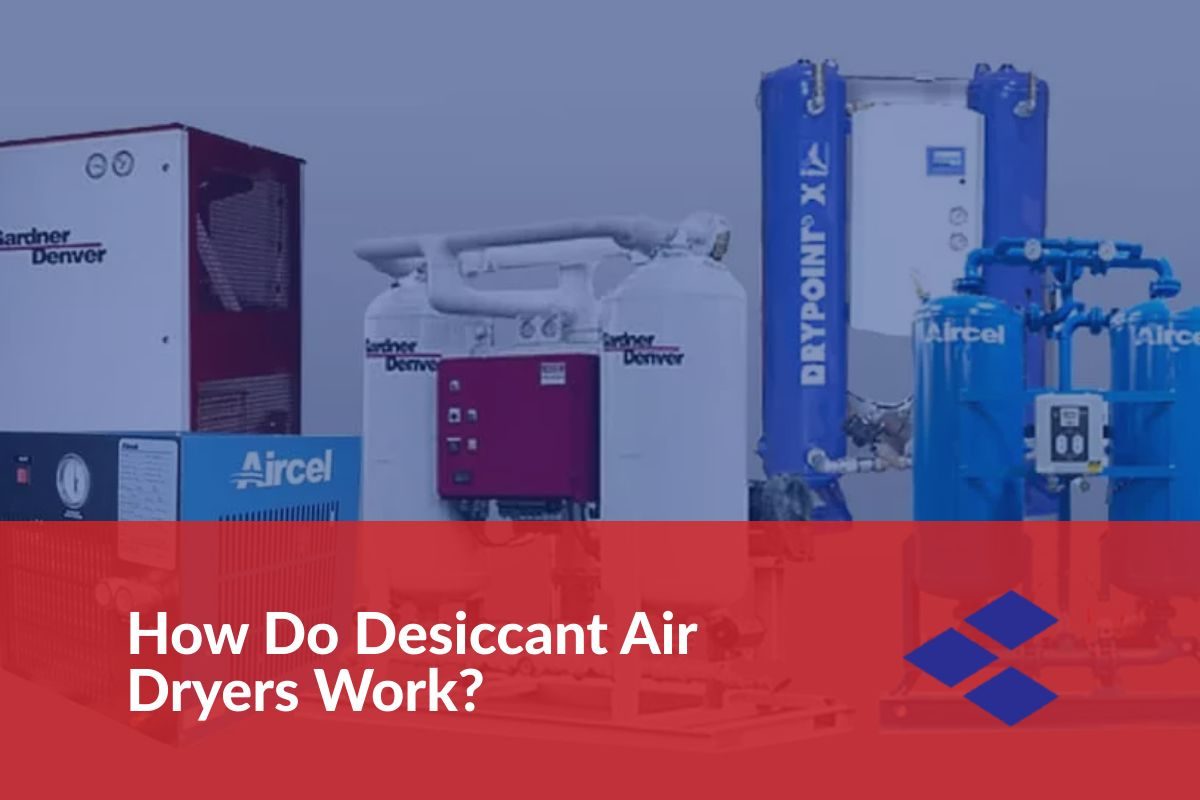
If your company’s production demands clean, dry compressed air, you must invest in an air dryer for your air compressor system. A wide range of industrial air dryers is available for companies that use compressed air. Knowing the types and their use is essential to finding the right dryer for your specific applications. One type is the desiccant air dryer. These dryers are a popular choice because they are efficient, easy to use, and available in various types for different industrial applications.
What Is Desiccant?
A desiccant is an adsorbent material that has a high attraction to water. In addition, the material is hygroscopic, which allows it to maintain a dry environment as it pulls and holds water molecules within itself.
What Are the Types of Desiccants?
Desiccant materials are used in many applications, both in ordinary domestic and large-scale industrial uses like air compression systems. Most desiccant materials are chemically stable, but a few are toxic and can only be used in certain conditions. The most common types of desiccant materials include the following:
- Silica
- Calcium chloride
- Activated charcoal
- Calcium sulfate
- Aluminosilicate materials (zeolites)
What Is a Desiccant Air Dryer and How Does It Work?
A desiccant air dryer, also referred to as a regenerative desiccant dryer or adsorption dryer, is an industrial machine that uses desiccant materials to remove water from the air that flows through it. Typically, desiccant air dryers use a two-tower setup to maintain a continuous air-drying process. One-tower setups are also used, but not as commonly as the two-tower system.
Desiccant air dryers work based on the principle that moisture always migrates to the driest medium possible. Therefore, moisture is eliminated from compressed air by directing it over an adsorbent desiccant material. As the air contacts the desiccant material, water molecules transfer from the wet air to the dry adsorbent materials. However, desiccant materials have a fixed adsorption capacity. Therefore, they must be replaced or regenerated once this capacity is reached.
To provide a continuous supply of dry air, desiccant air dryers use two towers with chambers of the adsorbent material. During operation, one of the towers is working and drying the compressed air while the other is offline. The ofline tower is being regenerated to come online when the first reaches its adsorption capacity. The two towers alternate in this manner to provide continuous operation.
Where Are Desiccant Air Dryers Used?
Desiccant air dryers are used in almost all industries that need high-quality or ultra-dry compressed air. Some of those industries include the following:
- Food and Beverage: Products in food and beverage manufacturing and distribution facilities require sterile, dry air to keep them safe for sale and consumption.
- Medical: Sterile, dry compressed air is crucial for numerous medical applications, including those in emergency rooms, intensive care units, other hospital settings, and dental offices. The air used in medical applications has to be clean and reliable – especially when it’s used in ventilation systems that provide oxygen for patients undergoing surgery or needing breathing assistance.
- Agriculture: Both residential and commercial farms often use compressed air for spraying, cleaning, and processing crops. Any excess moisture or contaminants could lead to unsafe and unusable products.
- Manufacturing: Manufacturing plants use compressed air for a variety of purposes, including equipment operation and maintenance. Any unwanted moisture could potentially damage equipment and cause components to fail.
- Pharmaceutical: In the pharmaceutical industry, companies work with very sensitive materials; even the tiniest contaminant or inconsistency can make whole batches unsafe to use.
- Commercial Artistry: Industries like vehicle painting and woodworking use compressed air, which plays a huge role in what the finished products look like. Operators need air that is free from bacteria, rust, and other contaminants.
Want to Know More about Desiccant Air Dryers?
If you’re ready to learn more about desiccant air dryers and how they can help in your industry, we can answer your questions. At ESA, we have committed, experienced professionals who take pride in delivering the high-quality products and services your company deserves.
Contact us today to discuss your air dryer needs. We’re here to help.
Arthur Pue
Arthur Pue is the President of Engineering Sales Associates. Connect with him on LinkedIn.
